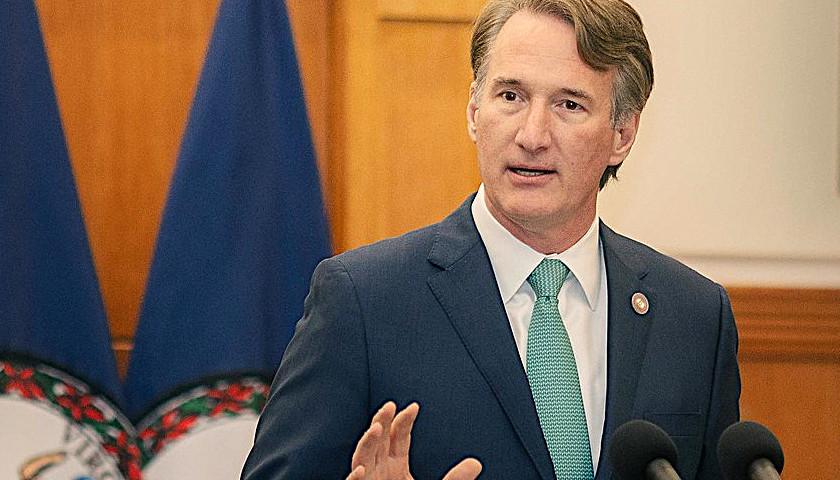Chris Ronayne, the Democratic candidate for Cuyahoga County executive, said in a public forum this week that he would support Ohio’s municipalities allowing noncitizens to vote in local elections.
The former Cleveland city administrator and former president of University Circle, Inc., a community development corporation, explained to attendees at the Global Cleveland panel discussion at Jukebox that he believed cities can use their home rule powers to adopt that election policy.
“If we have a mayor who said a citizen [sic] is paying their taxes here, and I want to see a person who may not technically be ‘qualified’ as a citizen, I want to see what that mayor has to say,” Ronayne said. “And if that mayor wants to see that resident be able to walk into a voting booth and vote, then I want to support the mayor in a home rule city.”
Ronayne faces GOP opponent Lee Weingart, a lobbyist and former county commissioner who also appeared at the forum at Jukebox, in November’s election. Though the event was not billed as a debate, the two verbally clashed over a number of immigration-related issues that the forum was set up to discuss.
One issue on which Ronayne attacked Weingart concerned sanctuary cities and counties that protect illegal aliens from federal immigration enforcement. While Cleveland officials have taken a lax posture when it comes to cooperating with national enforcement efforts, the D.C.-based Center for Immigration Studies does not yet officially consider either the city or Cuyahoga County a “sanctuary” jurisdiction. Nevertheless, Franklin County, which is home to Columbus, and Hamilton County, which encompasses Cincinnati, both meet the definition; if the Democratic candidate has his way, Cuyahoga will too.
“Lee Weingart was hostile to the idea of sanctuary cities,” Ronayne said. “I am not. I will lean in and say, ‘Listen, we are a city of immigrants.’”
Statewide Republican officials denounced the Democrat’s declaration on noncitizen voting, citing it as a reason to vote for Weingart and to support the Issue 2 ballot proposal stipulating that only citizens may participate in elections.
“Anyone who doesn’t believe there is a liberal movement to allow non-citizens to vote, watch this clip from Chris Ronayne, Democratic candidate for Cuyahoga Co. Executive,” Ohio Secretary of State Frank LaRose (R) wrote on Twitter. “To my friends in Cuyahoga Co: this is why @weingart2022 needs our support and why Ohio needs Issue 2!”
Lieutenant Governor Jon Husted (R) echoed his colleague’s perspective.
“If you’re not a citizen, you should not be allowed to vote,” he tweeted. “It’s pretty simple.”
If a majority of Buckeye State voters approve Issue 2 on November 8, the state constitution will be amended to clarify that noncitizens may not vote on local races or ballot questions. Policymakers began work on the proposed amendment after residents of the liberal Dayton suburb of Yellow Springs voted in a 2019 referendum to permit noncitizen participation in village elections.
In response to Yellow Springs’ move, LaRose cited Article V, Section 1 of the Ohio Constitution, which describes eligible voters as U.S. citizens, to deem the municipal policy invalid. He thus ordered the Greene County Board of Elections to reject all voter registrations not held by American citizens. While village lawmakers contended that the state constitution allows localities broad powers of self-government, the secretary of state pointed out that they can only exercise those powers insofar as they do not “conflict with general laws.”
To settle any further debate over this issue, State Representatives Jay Edwards (R-Nelsonville) and Bill Seitz (R-Green Township) sponsored a resolution putting a citizen-only voting amendment on the ballot this autumn.
A federal law signed by Democratic President Bill Clinton in 1996 – the Illegal Immigration Reform and Immigrant Responsibility Act – prohibits any state from allowing noncitizens to vote in federal elections. Many state constitutions recognize only U.S. citizens as voters. But many of those same documents say nothing about whether localities may extend the franchise to other legal residents.
Since 2018, four states – Alabama, Colorado, Florida and North Dakota – successfully asked voters to approve measures barring any jurisdiction from letting noncitizens vote. Arizona has long operated under such a constitutional provision as well. Yet numerous left-leaning localities, including San Francisco, New York City, and several Maryland towns and cities, now allow noncitizens to vote in at least some elections.
– – –
Bradley Vasoli is managing editor of The Ohio Star. Follow Brad on Twitter at @BVasoli. Email tips to [email protected].
Photo “Chris Ronayne” by Chris Ronayne for Cuyahoga County Executive. Background Photo “Cuyahoga County Courthouse” by Mikerussell. CC BY-SA 3.0.





